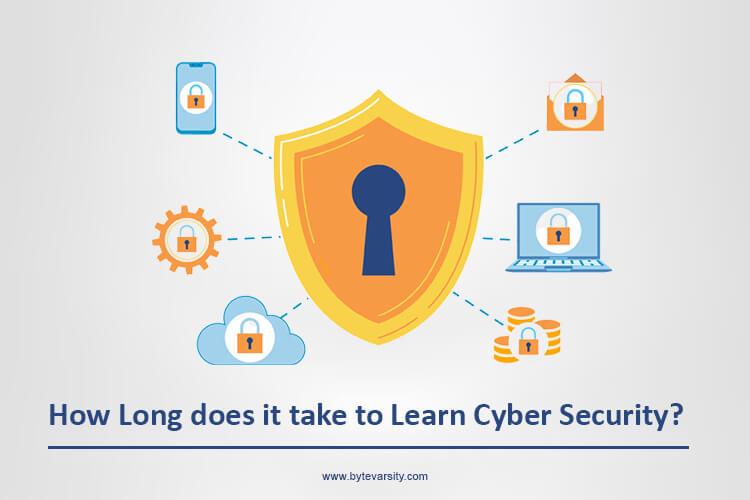How to Become a Cyber Security Engineer?

A Cybersecurity Engineer is a professional who is responsible for designing, developing, and implementing solutions to protect an organization’s information systems, networks, and data from cyber threats. The role of a Cybersecurity Engineer includes tasks such as conducting risk assessments, identifying potential security vulnerabilities, and recommending and implementing security controls to mitigate security risks.
In addition to technical skills, Cybersecurity Engineers also need to have a strong understanding of security policies, regulations, and compliance requirements. They must be able to effectively communicate the risks and impacts of security threats to non-technical stakeholders and work with them to implement effective solutions.
Cybersecurity Engineers often work in a variety of industries, including financial services, healthcare, government, and technology. They may be employed by organizations of all sizes, from small startups to large multinational corporations.
Contents
What Does a Cybersecurity Engineer Do?
A Cybersecurity Engineer is responsible for ensuring the security and protection of an organization’s information systems, networks, and data. They play a crucial role in preventing and mitigating cyber attacks, data breaches, and other security incidents.
The specific tasks and responsibilities of a Cybersecurity Engineer may vary depending on the size and structure of the organization they work for, but some common duties include:
- Conducting risk assessments: A Cybersecurity Engineer will regularly assess the organization’s information systems, networks, and data to identify potential security vulnerabilities and assess the risk of a security breach.
- Designing security solutions: Based on the results of their risk assessments, the Cybersecurity Engineer will design and implement solutions to mitigate the identified risks. This could include firewalls, intrusion detection systems, encryption technologies, and other security controls.
- Implementing security controls: Once a solution has been designed, the Cybersecurity Engineer will implement the necessary security controls, testing and verifying that they are working as intended.
- Monitoring and maintaining security systems: The Cybersecurity Engineer will be responsible for monitoring the organization’s security systems, ensuring that they are functioning properly, and making any necessary updates or changes.
- Responding to security incidents: In the event of a security incident, the Cybersecurity Engineer will be responsible for responding to the incident, investigating the cause, and implementing appropriate remediation measures.
- Staying up-to-date with emerging threats: Cybersecurity threats are constantly evolving, and a Cybersecurity Engineer must stay informed about the latest threats and vulnerabilities, and implement new security controls as needed.
- Communicating with stakeholders: A Cybersecurity Engineer must be able to effectively communicate the risks and impacts of security threats to non-technical stakeholders, such as senior management and business users, and work with them to implement effective solutions.
In addition to technical skills, Cybersecurity Engineers must have a strong understanding of security policies, regulations, and compliance requirements. They must also have excellent problem-solving, analytical, and communication skills, as well as the ability to work well under pressure and in fast-paced environments.
How to Become a Cybersecurity Engineer?
Becoming a Cybersecurity Engineer typically requires a combination of education and experience in the field of computer science and information security. The specific steps to becoming a Cybersecurity Engineer may vary depending on your career goals and the organization you work for, but here are some general steps that can help guide you:
- Obtain a degree in a relevant field: A bachelor’s degree in computer science, information technology, or a related field is usually required to become a Cybersecurity Engineer. Some organizations may also accept a degree in a related field, such as electrical engineering or mathematics.
- Gain experience in the field: To be a successful Cybersecurity Engineer, you will need to have hands-on experience in the field. This can be achieved through internships, apprenticeships, or entry-level positions in related fields, such as network administration or security analysis.
- Obtain relevant certifications: There are a number of certifications available that can help you demonstrate your expertise in the field of information security. Some popular certifications include the Certified Information Systems Security Professional (CISSP), Certified Ethical Hacker (CEH), and CompTIA Security+.
- Stay up-to-date with emerging technologies and threats: The field of information security is constantly evolving, and Cybersecurity Engineers must stay informed about the latest threats and technologies. This can be achieved through attending conferences, participating in training programs, and staying abreast of current events in the field.
- Build a network of contacts: Building a network of contacts in the field can be helpful in finding job opportunities, staying informed about the latest developments, and seeking advice and mentorship from experienced professionals.
- Consider advanced degrees: Some organizations may prefer to hire Cybersecurity Engineers with advanced degrees, such as a master’s degree in computer science or information security. Pursuing an advanced degree can also deepen your knowledge and expertise in the field.
- Build a portfolio: Demonstrating your experience and skills in the field can be helpful in securing a job as a Cybersecurity Engineer. Building a portfolio that showcases your projects and achievements can help you stand out from other applicants.
Keep in mind that the specific requirements for becoming a Cybersecurity Engineer may vary depending on the organization and the type of role you are pursuing. However, by obtaining a relevant degree, gaining experience, obtaining certifications, staying up-to-date with emerging technologies and threats, building a network of contacts, and building a portfolio, you can increase your chances of success in the field.
What Degree Is Needed to Be a Cybersecurity Engineer?
A bachelor’s degree in a relevant field is typically required to become a Cybersecurity Engineer. Some common fields of study include:
- Computer Science: A bachelor’s degree in computer science provides a strong foundation in computer programming, algorithms, data structures, and computer systems, which can be useful for a career in cybersecurity.
- Information Technology (IT): A bachelor’s degree in IT can provide a comprehensive education in computer systems, networks, and information security, which can be beneficial for a career in cybersecurity.
- Information Security: Some universities offer bachelor’s degrees specifically in information security or cybersecurity, which can provide a deep dive into the technical and theoretical aspects of the field.
- Electrical Engineering: A bachelor’s degree in electrical engineering can provide a strong foundation in the design, development, and operation of complex systems, which can be useful for a career in cybersecurity.
- Mathematics: A bachelor’s degree in mathematics can provide a strong foundation in mathematical reasoning, cryptography, and data analysis, which can be useful for a career in cybersecurity.
In addition to a bachelor’s degree, many organizations prefer to hire Cybersecurity Engineers with certifications, such as the Certified Information Systems Security Professional (CISSP), Certified Ethical Hacker (CEH), or CompTIA Security+. Advanced degrees, such as a master’s degree in computer science, information security, or a related field, may also be preferred by some organizations, or may be necessary for certain advanced roles in the field.
It’s worth noting that while a bachelor’s degree in a relevant field is typically required to become a Cybersecurity Engineer, hands-on experience in the field, obtained through internships, entry-level positions, or independent projects, can be just as important in landing a job and succeeding in the field.
Cybersecurity Engineer Salary:
The salary of a Cybersecurity Engineer can vary widely based on several factors, including:
- Location: The cost of living and demand for Cybersecurity Engineers can vary widely by region, with some cities and states offering higher salaries than others.
- Experience: Cybersecurity Engineers with more years of experience in the field are typically paid more than those with less experience.
- Education: A higher level of education, such as a master’s degree in computer science or information security, can also result in higher salaries for Cybersecurity Engineers.
- Size and Type of Organization: The size and type of organization can also impact the salary of a Cybersecurity Engineer. Larger organizations, government agencies, and technology companies may offer higher salaries than smaller organizations or companies in other industries.
According to data from the U.S. Bureau of Labor Statistics (BLS), the median annual wage for Information Security Analysts, which includes Cybersecurity Engineers, was $92,600 as of May 2020. The top 10% of Information Security Analysts earned more than $144,000 per year, while the bottom 10% earned less than $56,000 per year.
Keep in mind that these are just general estimates, and actual salaries can vary widely depending on the factors listed above. To get a better understanding of the salary range for Cybersecurity Engineers in your area, it may be helpful to research local job listings, speak with recruiters or hiring managers in the field, or consult salary databases and websites.
What’s the Demand for Cybersecurity Engineers?
The demand for Cybersecurity Engineers is on the rise, as the number of cyber threats continues to grow and organizations of all sizes and industries look to protect their networks, systems, and data.
According to the U.S. Bureau of Labor Statistics (BLS), employment of Information Security Analysts, which includes Cybersecurity Engineers, is projected to grow 31% from 2019 to 2029, much faster than the average for all occupations. This demand is driven by a growing number of cyber attacks and the increasing number of devices and systems that need to be protected, as well as the increasing complexity of cyber threats.
As organizations continue to store more sensitive information electronically and rely on technology for critical business functions, the need for Cybersecurity Engineers who can design, implement, and manage effective security measures will only increase.
In addition to a growing demand for Cybersecurity Engineers in traditional industries, such as finance, healthcare, and government, there is also a growing demand for Cybersecurity Engineers in technology-focused industries, such as software development, cloud computing, and Internet of Things (IoT) devices.
Overall, the demand for Cybersecurity Engineers is expected to remain high for the foreseeable future, making it an attractive and lucrative career choice for individuals with a background in computer science, information security, or a related field.
Cybersecurity Books for Beginners:
If you are just starting out in the field of cybersecurity, there are many books that can provide a solid foundation in the basics of the discipline. Here are some of the best cybersecurity books for beginners:
- “Cybersecurity Basics” by Mark Stanislav and Jamess J. Conley: This book provides a comprehensive introduction to the basics of cybersecurity, including key concepts, best practices, and common security threats.
- “The Cybersecurity Handbook” by Richard A. Clarke and Robert K. Knake: This book provides a broad overview of cybersecurity, covering topics such as network security, encryption, incident response, and more.
- “Black Hat Python: Python Programming for Hackers and Pentesters” by Justin Seitz: This book provides a hands-on introduction to hacking and penetration testing, using the Python programming language.
- “Cryptography Engineering: Design Principles and Practical Applications” by Niels Ferguson, Bruce Schneier, and Tadayoshi Kohno: This book provides an in-depth look at the design and implementation of cryptographic systems, including an introduction to the math behind cryptography.
- “CEH v10 Certified Ethical Hacker Study Guide” by Ric Messier: This book provides a comprehensive study guide for the Certified Ethical Hacker (CEH) certification, covering topics such as ethical hacking, penetration testing, and network security.
- “The Hacker Playbook 2: Practical Guide to Penetration Testing” by Peter Kim: This book provides a practical, step-by-step guide to penetration testing, including information on how to set up a testing environment, how to perform various types of attacks, and how to report on findings.
- “Applied Cryptography: Protocols, Algorithms, and Source Code in C” by Bruce Schneier: This book provides a comprehensive introduction to cryptography, including the mathematical concepts behind various algorithms and the practical implementation of cryptographic systems.
These books provide a good starting point for anyone looking to learn about cybersecurity and gain a deeper understanding of the field. However, keep in mind that the field of cybersecurity is constantly evolving, so it’s important to stay up-to-date with the latest developments and best practices.
Conclusion:
To become a Cybersecurity Engineer, individuals typically need a combination of education, experience, and technical skills. A bachelor’s or master’s degree in computer science, information security, or a related field is often required, along with hands-on experience working with security technologies and methodologies.
Cybersecurity Engineers should have a strong understanding of network security, cryptography, incident response, and risk management, as well as the ability to stay current with the latest developments and best practices in the field. The demand for Cybersecurity Engineers is expected to remain high, making it a lucrative and in-demand career choice for those with the necessary skills and expertise.






